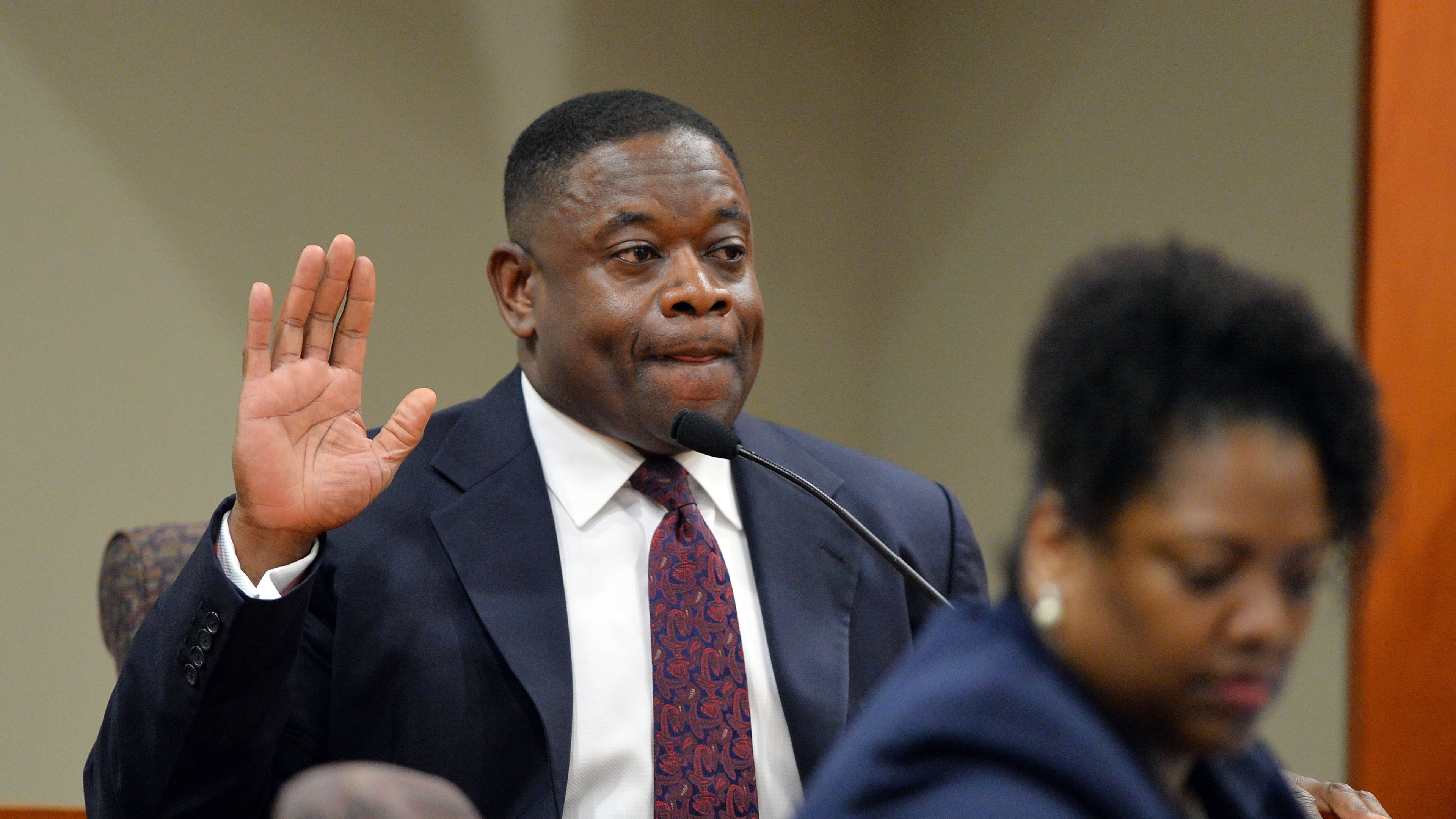Admitted 'liar' testifies in DeKalb CEO corruption case

A prosecutor told jurors Tuesday they don’t have to believe Kelvin Walton, the one-time head of DeKalb’s purchasing department who will testify about how county CEO Burrell Ellis allegedly strong-armed vendors.
But Walton’s covert recordings don’t lie, said the prosecutor, Lawanda Hodges.
The recordings Walton made will show Ellis wanted to stop giving the county’s business to contractors who wouldn’t make campaign contributions, Hodges said.
Jurors are scheduled to hear the recordings Wednesday during the second day of testimony in the retrial of Ellis, who is fighting charges of bribery, extortion and perjury.
Ellis’ lead attorney, Craig Gillen, dismissed the prosecution’s allegations in his opening statements.
"There's not a single thing wrong with Mr. Ellis calling up folks who did business with the county and saying, 'Can you contribute to my campaign?'" Gillen said. "The evidence will show that there was no threat."
Last year, a jury hearing the case against Ellis deadlocked and a mistrial was declared. But prosecutors have revised their strategy, dropping some of the charges against DeKalb’s top executive.
Tuesday, Walton — who has admitted to lying under oath and agreed to work for prosecutors to avoid facing charges himself — was one of the first witnesses called to the stand, another change from last fall. In the previous trial, Walton stayed on the stand for four days after the jury had already heard powerful accusations from Ellis’ alleged victims.
“He lies over and over and over again, all under oath. How can you believe him? How can you believe a documented liar? You don’t. The DA’s office wired him up,” Hodges said in her opening statement, referring to Walton.
Walton said he acted in concert with Ellis as they harassed vendors for donations.
“I’m going to lay it out to tell everybody what I’ve done,” Walton testified. “I didn’t do this stuff by myself.”
During both sides’ opening, they asked the men and women of the jury to return verdicts that speak the truth.
Their ideas of the truth are very different.
“Debt. Desperation. And deceit. … That is what the evidence will show you this is about,” Hodges said, a revised theme compared to the first trial, when she repeated the refrain that the case was about power, punishment and perjury.
Ellis owed more than $48,000 in campaign expenses, so Hodges said he did what it took to convince contractors to help him pay down the debt. Ellis was unopposed in the general election after winning his primary with 60 percent of the vote.
Gillen had a different take. He said Ellis is not guilty and the government’s charges are based on lies and misunderstandings.
“Not one thin dime went into Burrell Ellis’ pocket that wasn’t supposed to be there. Not a single, solitary dime,” Gillen said.
Superior Court Judge Courtney Johnson has said testimony should last about two weeks. It took three weeks to complete testimony during last year’s trial.
Ellis has been suspended with pay for almost two years — collecting his $13,000 monthly salary — while the charges have been pending.
If he’s convicted, he will lose the office he has won by election twice, and he also could lose his license to practice law. If he’s acquitted of all charges, however, he could immediately resume his duties as the CEO of the fourth-largest county in Georgia with 722,000 residents.
After Walton’s testimony, the jury will hear from four contractors that an indictment alleges he victimized.
Hodges said Ellis wasn’t concerned about official county business when he called contractors. She said his sole purpose was to collect campaign cash. In one case, she said, Ellis berated Joanne Wise, a representative Ciber, a company that provided technology consulting for the county government.
“It wasn’t about her contract with the county. It was personal campaign finance calls,” Hodges said. “She’ll tell you he scolded her like she was a child.”
Gillen countered that Ellis made it clear that he only had an issue with contractors, like Greg and Trina Shealey of National Property Institute, who ignored his calls or hung up on him.
“He was not threatened, he was not extorted, he was never even asked for a campaign contribution,” Gillen said.


